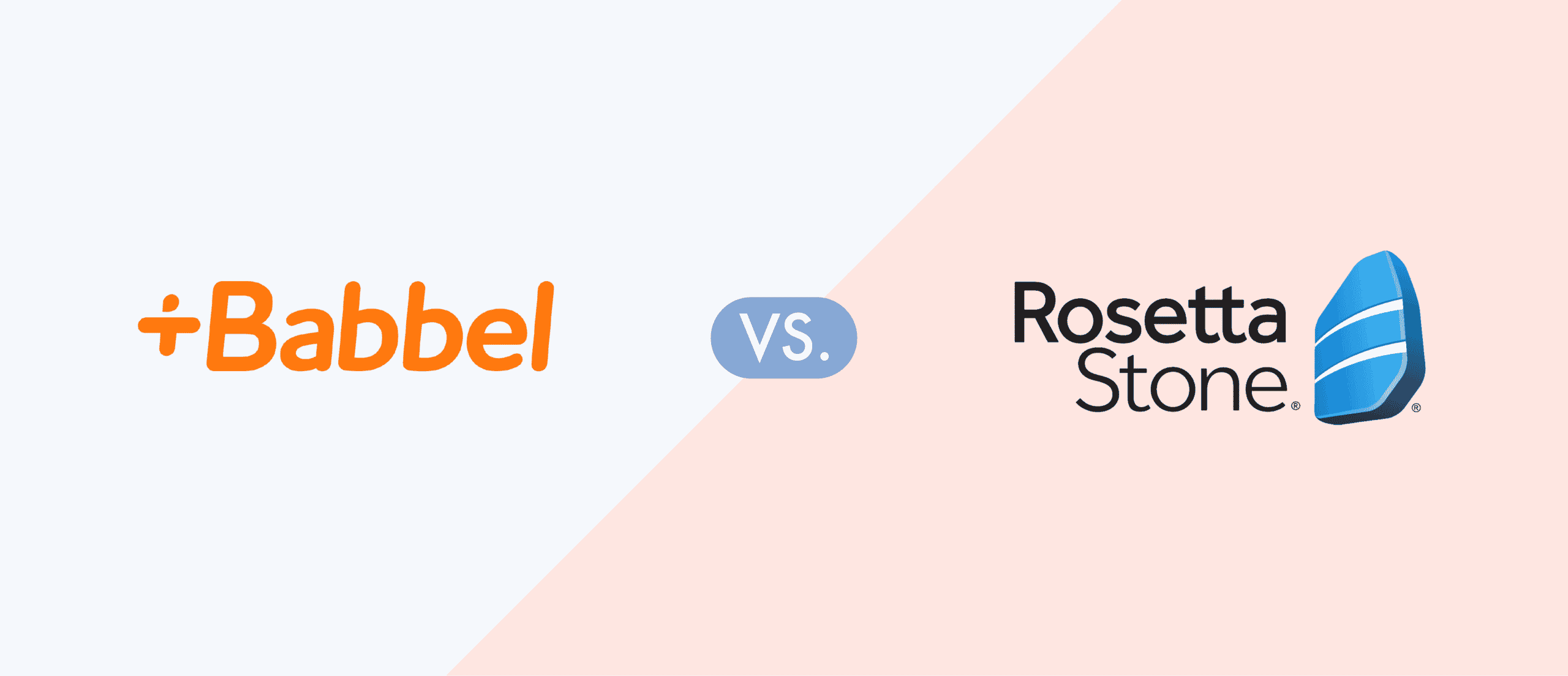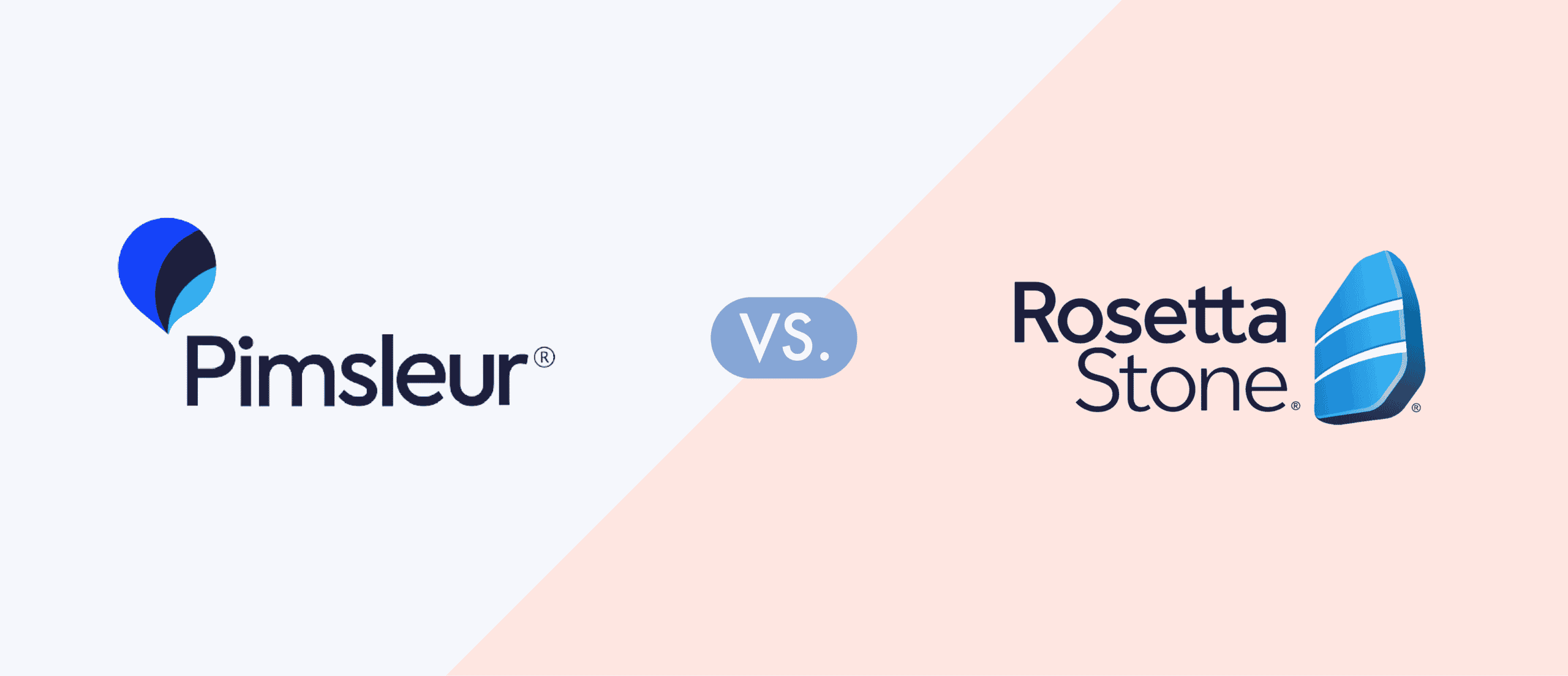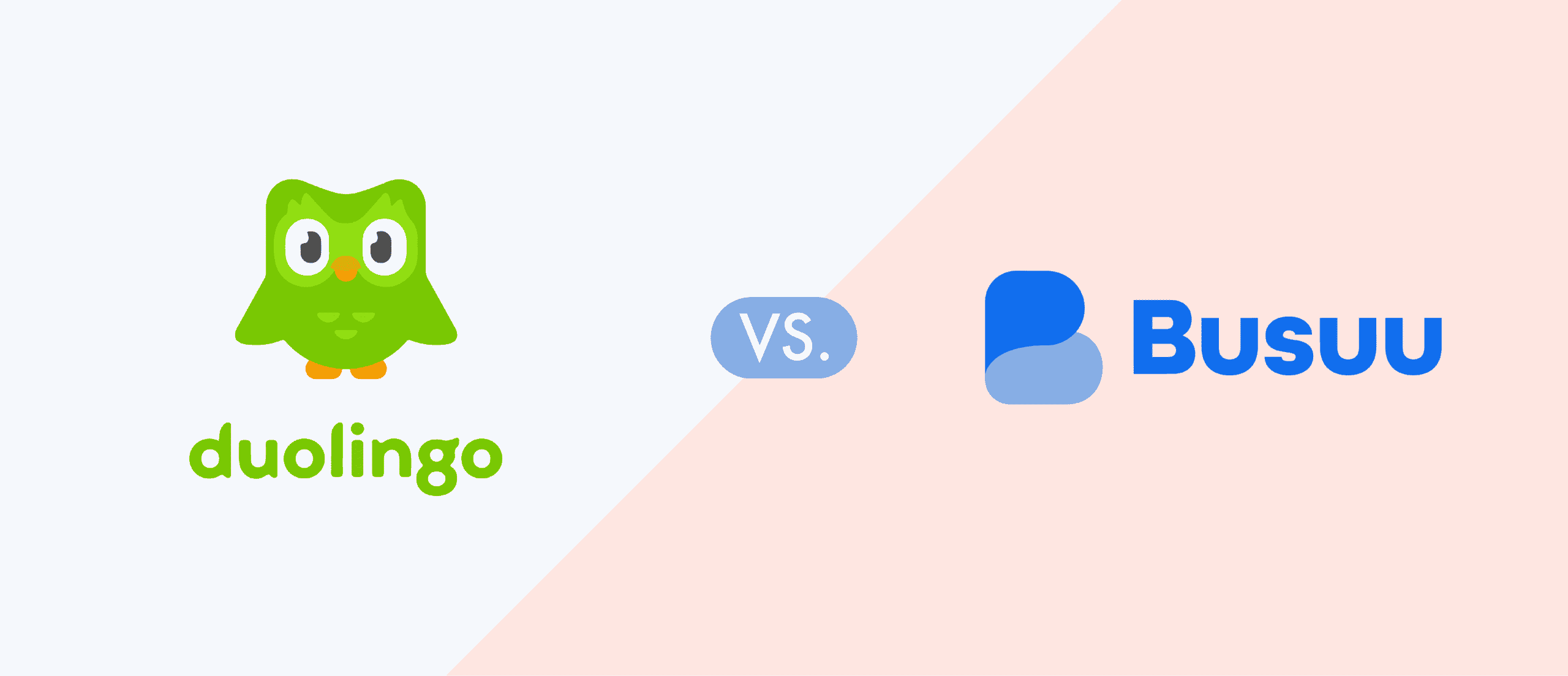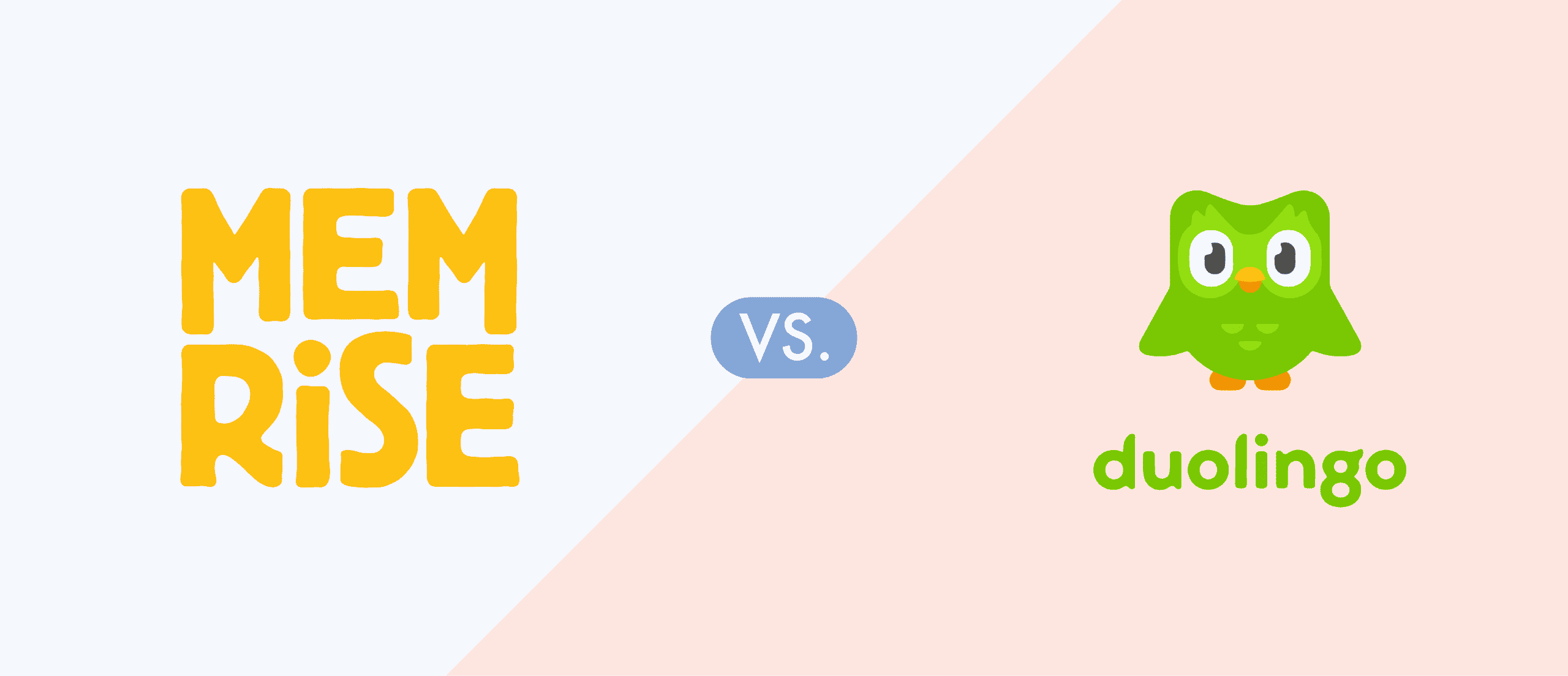Babbel vs Rosetta Stone
Updated: 07. Mar, 2023
Learning a new language can be both challenging and exciting. Unfortunately, not everyone who began the language learning journey has made it to the other side. There are several bumps on the way that every language learner will have to surmount. But the good news is that many have mastered new languages. If you can find the help of dependable guides, you can learn any language you want.
Babbel and Rosetta Stone are two of those dependable hands that can become your language learning pals till you speak like a native speaker. Whether it is for travel, work, or personal interest, both apps have what you need to be ready on time. With any of these language learning apps’ assistance, you have a better chance of joining an army of successful new language learners worldwide.
However, since you must make the difficult choice between the two, we are here to help you. In this article, we will compare these apps. Hence, we will review their strengths (and maybe their weaknesses), differences, and similarities and place them on a scale. Your only job is to find out which resonates with your peculiar needs. Let’s get started.
Overview of Babbel
In 2007, Babbel became the first of its kind, a novel language learning app. Instead, the app found an army of eager language enthusiasts searching for more practical solutions. Over the years, Babbel has successfully attracted language learners and recorded over 10 million subscriptions to its services.
The app provides its users with learning programs for 14 highly sought-after languages. These programs contain at least 50,000 lessons with almost 15,000 hours of instruction and interaction. Babbel endeavors to make the learning process easy and fun. The app features live virtual classes from language experts, games, videos, and podcasts.
Babbel has built its app to give users a leisurely ride through the language learning journey. Babbel asks users to match words with images, repeat words over the microphone, and fill in blanks. The app, available on iOS, Android, and the web, scores big wins on user experience. Babbel also prioritizes user satisfaction as it periodically introduces new and improved features.
Overview of Rosetta Stone
Rosetta Stone launched its language learning app as a solution to its founder, Allen Stoltzfus’s language learning needs. Allen wanted something more practical and seamless than what the traditional methods could offer. So Rosetta Stone, named after an ancient and famous Egyptian artifact, was first called Fairfield Language Technologies.
In 2003, the U.S.-based company spread its tentacles, expanding its brand and establishing a global presence. From Arlington, Virginia, Rosetta Stone provides a global opportunity for in-depth language learning.
Rosetta Stone app users can access robust learning resources for at least 30 languages. These languages include German, French, Spanish, Italian, Irish, Arabic, Russian, Greek, Farsi, and Vietnamese.
The app uses live tutoring and visual and audio aids to drive its points home. Rosetta Stone uses the target language the whole time; there are no translations. Likewise, there is no English language use except for in-app properties such as menus. The app is available on the web, iOS, and Android.
Rosetta Stone, amongst other features, provides embedded translations. This feature gives you quizzes in the form of images that carry messages. If you cannot figure out the translations, you can press and hold these images to reveal them. The app also provides short stories for you to read. You can turn on the recorder while you read, so you can listen to yourself later.
That’s not all. Rosetta Stone won’t impose lessons on you; every user has the liberty to choose their lessons.
Similarities Between Babbel and Rosetta Stone
Babbel and Rosetta Stone aren’t exactly oil and water. However, both apps share similarities which we highlight below.
Highly repetitive
One thing that is pretty obvious in both Babbel and Rosetta Stone is their repetitive course content. The course content can get pretty repetitive as you progress on both apps. The repetitive nature of the course content has won both admirers and critics. While some users see the technique as an essential learning strategy, others could find it pretty uninspiring.
Speech recognition feature
The lack of practice opportunities can become a significant challenge for language learners. A speech recognition feature will help you grasp a new language being learned much more easily, especially if you don’t have a native speaker around. Finding a partner to listen to and correct your speech is a valuable asset to have in a language app. In addition, since you won’t speak to a human, you won’t feel intimidated or embarrassed when your speech is corrected. Both Babbel and Rosetta Stone realize this need and feature voice recognition technology in their apps.
Flexibility
Babbel and Rosetta Stone offer flexible learning plans. You can decide how fast you want to learn and how much learning you wish to engage in daily.
For example, Babbel offers its users several learning plans to choose from. There is the 12-month plan which is the least intense, the 6-month plan, and the 3-month plan which is of the highest intensity.
Rosetta Stone offers four learning plans based on your reasons for learning the target language. These reasons include work, basics and beyond, family, and travel.
Learning flexibility allows you to work at your own pace, based on your specific goals.
Live tutoring
Babbel and Rosetta Stone offer live tutoring options. This feature gives you a real classroom experience with an expert in your target language right in your home. You will access instant feedback from your teacher and enjoy valuable interaction.
Babbel’s live feature allows you to enjoy this experience any day. There is always a class you can join any day of the week. Each Babbel Live class holds a maximum of six students, so every student can get all the attention they need.
Rosetta Stone Live provides between 15 to 20 minutes of live classes. Tutors will teach vocabulary and grammar lessons, plus provide secret tips to aid your learning process. In addition, students can discuss and practice with their tutors in a fun and judgment-free setting.
Money-Back guarantees
Babbel and Rosetta Stone offer money-back guarantees on the use of their apps. However, Rosetta Stone is more generous in this regard. Babbel promises a 14-day money-back guarantee, while Rosetta Stone will refund its users who aren’t satisfied with the app after 30 days of use.
Differences Between Babbel and Rosetta Stone
There are several differences between Babbel and Rosetta Stone that you must know about. These differences should interest you if you are wondering which of the apps to go for. Hence, you will get all the information necessary to make the right choice. While it is difficult to say which is the better option, it is easy to determine which works best for you. Let’s see.
Pricing
No doubt, pricing can influence your choice of language apps. Babbel takes a slight lead in this regard. Overall, Babbel’s lessons are cheaper than those of Rosetta Stone. Babbel’s 3-month subscription costs $29.85, while the Rosetta Stone goes for $35.97.
For the 12-month plan, Babbel sells for $83.40, while Rosetta Stone costs $95.88. Babbel offers a 6-month subscription for $50.70 and no lifetime subscriptions, while Rosetta Stone doesn’t offer a 6-month subscription. However, Rosetta Stone sells a lifetime subscription for $179. So, in the long run, Rosetta Stone’s affordable lifetime subscription sort of makes up for its slightly more expensive pricing.
Free Trial Duration
Everyone loves a free trial. You can explore an app’s features with a free trial before making a financial commitment. While both of these apps open themselves up for pre-payment scrutiny, there is a difference in the length of their free trials
While Babbel offers a free trial on the first lesson of every course, Rosetta Stone allows you to get a better feel of the app and take free lessons for three days. Babbel’s free trial will last depending on how fast you consume the first lesson. On the other hand, Rosetta Stone allows you to enjoy more of its lessons within the three-day window.
Learning Method
Babbel starts with some swift introduction to basic words or phrases in the target language. Afterward, the lessons progress into a brief flashcard test session. A word arrangement test could come next, where the app requires that you rearrange certain sentences with your keyboard and then fill in the blank tests.
On the other hand, Rosetta Stone features a learning exercise that demands listening and pronouncing a word or phrase. After you’ve got the pronunciation correct, the app then asks you to match audio pronunciations with their corresponding images. These corresponding images will sit side by side with the wrong option. You are required to click on the right option. The sentences go from basic to increasingly more complex as you advance. Due to the emphasis on pronunciation, Rosetta Stone will produce more accurate accents for its users than Babbel.
Babbel’s lesson exercises are more varied than Rosetta Stone’s, which rely on audio and visual learning. Relying on visual cues does a less effective job of grounding the learner’s knowledge of the language.
It is also worthy to note that Babbel’s lessons are garnished with some grammar drills, unlike those of Rosetta Stone. Rosetta Stone leaves out the grammar lessons, which many language learners may find tedious. However, Babbel’s grammar rules are a blessing for those who want to gain more comprehensive language knowledge.
In addition to these, Babbel doesn’t score very high in pronunciation drills. However, Rosetta Stone better guides its users in pronunciation.
Length of Lessons
Babbel’s lessons are shorter than Rosetta Stone’s. A Babbel lesson will typically take anything from 10 to 15 minutes. On the other hand, Rosetta Stone exercises, which move at a slower pace, could last for up to thirty minutes. So, if you have a short attention span, you might need to brace up a little if Rosetta Stone is your choice.
Translation
Translation is a major difference between Babbel and Rosetta Stone language apps. Babbel users have access to robust translation aids throughout the course. As earlier mentioned, Rosetta Stone has chosen to go the opposite direction. Rosetta offers no translation whatsoever. Instead, its users come face to face with the target language from the get-go without any help.
This method intends to replicate the experience of a native speaker who typically grows up in an environment where the language is dominant. Rosetta Stone’s no translation policy tends to favor learners with some level of familiarity with the target language. For example, suppose you are entirely new to the language; you may feel lonely and isolated. In this case, you require extra patience to complete the lessons.
Number of Available Languages
Babbel and Rosetta Stone teach multiple languages on their platforms. However, Rosetta Stone offers a wider collection of languages for its users. Babbel allows users to learn fourteen languages, while Rosetta Stone offers up to twenty-five different language options.
Frequently Asked Questions
Here are quick answers to people’s popular questions about Babbel and Rosetta Stone.
Which is Better, Babbel or Rosetta Stone?
It depends. Both apps are great in their own way. However, with the help of this article, you will have to figure out which of them does justice to your specific language needs. There are several factors you can consider before making your choice. These factors include pricing, learning methods, your present level of proficiency, and the range of available languages.
While Babbel tilts more towards helping its users sustain longer conversations, Rosetta Stone uses a different approach. For Rosetta Stone, the exercises center around shorter and unconnected sentences.
Which of Babbel or Rosetta Stone is Best for Learning a New Language?
Both apps provide useful features for new language learners. New learners will likely not appreciate the academic nature of instructions as they will appreciate a fun and strategic learning. Both courses design their lesson plans to be as interesting as possible. While Babbel achieves this by tailoring the courses to the user’s specific interests, Rosetta Stone customizes lessons based on the user’s motivation.
While Babbel emphasizes grammar and real-world conversations, Rosetta is big on pronunciation and accent. Although both approaches are desirable for new learners, Rosetta Stone’s lack of translation could be either helpful or discouraging for different kinds of new learners.
Which is Cheaper, Babbel or Rosetta Stone?
Depending on your subscription plan, Babbel and Rosetta Stone can be cheaper. Babbel offers a lower cost for its monthly subscriptions. However, only Rosetta Stone provides a lifetime subscription for $179.
If we remove Rosetta Stone’s lifetime subscriptions, Babbel users will get lessons for a cheaper amount. However, Rosetta Stone’s lifetime plan is the best pricing alternative. The plan will make its users pay less than Babbel subscribers in the long run.
Conclusion
So, here you have it! Babbel and Rosetta Stone placed you on the scale as the sole judge. Basically, while Babbel helps users learn with longer conversations, Rosetta Stone uses more individual sentences. As you’ve already seen, there are many reasons you should go for either language learning app.
However, no one will understand your needs more than you. Therefore, it’s entirely up to you to examine your needs and preferences. Afterward, carefully examine the different approaches and emphasis of both apps. Then, you can find the best option that best suits you.
At the end of the day, irrespective of your choice, you have a good chance of becoming a decent new language speaker with these apps, just like many users before you.
Table of contents
Read more
Rosetta Stone vs Pimsleur
While looking for the best app to learn a new language, you must have come across Rosetta Stone and Pimsleu...
READ ARTICLE
Duolingo vs. Busuu
The benefits of language learning extend beyond pure fun. It may be quite helpful in many facets of your li...
READ ARTICLE
Duolingo vs. Memrise
Making life decisions can be tough. Choosing between Duolingo and Memrise for your language learning journe...
READ ARTICLE



